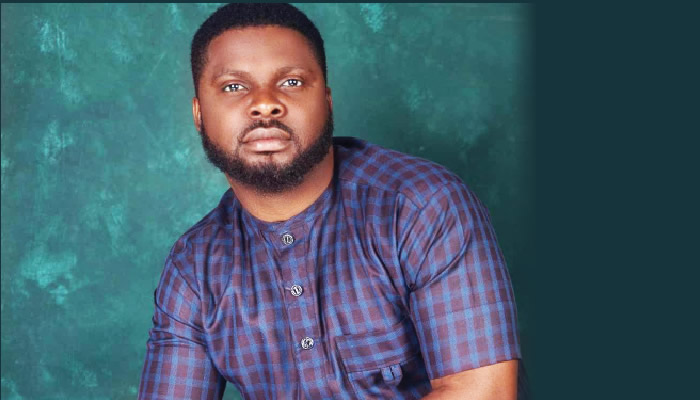
The immediate past media officer of the Super Eagles, Babafemi Raji, popularly known as Topmost Striker, talks about his career at Brila 88.9FM, his time with the Super Eagles and future plans, in this interview with ABIODUN ADEWALE
You recently resigned from sports radio, Brila 88.9FM after you quit as the media officer of the Super Eagles. First of all, how did you start your career in broadcasting and sports journalism?
It was during my days at the Obafemi Awolowo University. There was a new station then, NTA Ile-Ife. That was when Ben Murray-Bruce was the Director-General and there were regional stations. One day I was watching and saw two men analysing sports and I felt it was laid-back. Luckily they called for auditions, so, I went there and met the producer Mr. Bola Oladele. Before then too, I used to listen to my chairman (Larry Izamoje) on Brila. I went there with a full script. I was auditioning for TV and I was reading the script like I was on radio. The man allowed me to finish and then told me, ‘You have a very good knowledge of sports but this is TV and not radio.’ Surprisingly, he gave me the chance and introduced me to the GM, Mr. Samuel Patrick-Loko. From there, I started heading the sports desk and had three shows on Monday, Wednesday and Saturday. After school, the only thing in my head was sports, so, there was an opportunity in late 2007 at Brila and the rest is history.
How did you get the name Topmost Striker?
It was my chairman, Larry Izamoje, that gave me the name. I remember when I joined Brila in 2007, usually, it’s customary to have nicknames on the radio, so, I came up with ‘Hitman’ and gave myself jersey number 007, I felt like James Bond on air. Then one day he called me to his office and said, ‘because you have so much talent, I will call you Topmost Striker and your jersey number will be 299’ meaning two strikers at a time.
As a widely travelled journalist, who are some of the biggest personalities you interviewed in Nigeria and abroad?
During the 2010 World Cup, I met and interviewed the CEO of the tournament, Dr Danny Jordaan, that was big for me. I was also on the media committee with a lot of top men and bosses and also interviewed the coach of Uruguay then, Oscar Tabarez. I liked athletics so much as well. I went for an IAAF (now WA) training in Kenya and covered the African Championships and would always be around Ajoke Odumosu and Blessing Okagbare. The names in football are quite a lot from Nigeria to the rest of the world. From Obafemi Martins, Yakubu Aiyegbeni, Odion Ighalo, and even Vincent Enyeama. Aside from interviews, a player like Sanni Kaita and I were also together in London in 2018 when Nigeria was preparing for the World Cup.
Did your role with the Super Eagles make you see the NFF and the national teams in a different light?
I remember there was a story or comment I made about the Super Eagles before I became the media officer. The coach then, Genort Rohr, was having mostly foreign players and I said the NFF was feeding Rohr to kill the Nigerian league. When I was named media officer, Rohr was still the coach, and the first time he saw me, he reminded me of the comment. So, I told him convincingly that I said that as a professional journalist, but right then I was in the team to work for the team. So, being in the team made me see reasons over a lot of things. Most times when information is out, people think he has lied on behalf of the NFF but it’s not. It’s simply information management. I will tell you as it is but the information will still be managed.
There must have been a lot of pressure from colleagues while trying to cover the Super Eagles. How did you handle that as well?
The pressure is expected because our job is about headlines and deadlines. I also used innovations in technology to reduce that pressure by creating and using more social media channels and being very active on social media. I might not have been at 100 per cent but I will still give myself 80 per cent because I understood the pressure from far and wide. Most times the strategy was to discuss with my bosses first before we pushed out reports and I enjoyed a lot of support from all the media outfits in Nigeria. They were superb.
How did you feel when the team missed the 2022 World Cup?
I remember that day when it was 1-1 (against Ghana in Abuja) and our coordinator said we should start coming down from where we were seated, knowing how the game was going to end. Then inside the dressing room, it was soaked with tension and emotions. I will never forget the way Sadiq Umar was crying and that touched me. I remember how (Ahmed) Musa, a very great leader tried to rally everybody. When I got into the hotel, I got under the shower and started crying. I cried till I had a headache. It was a very low moment. Going to the World Cup with the team had been in my head because of the work we did in the media department as well. My wife even told me she could not call me at that time too, knowing how low it would have been.
Nigeria also won silver at the AFCON in Ivory Coast. Could you tell us about the events leading up to the tournament and the feeling of getting gifts and national honour afterwards?
Before the AFCON, we sat down to conceive the ‘Let’s Do It Again’ campaign and I’m very happy about how that idea became successful even though we got silver. Coach Jose Peseiro’s first statement about winning the AFCON when he first met us was inspiring. As soon as we arrived in Abidjan, Musa called the attention of everyone and said before we came down from the plane or bus, someone would always go down first to pray and bless the land to favour us. Then he turned to me and said I’ll be the one to always do that. And for me, I was ready to do anything for us to win the AFCON too. Before we left Nigeria, I remember telling my wife and some other officials how much I wanted us to win because I knew they would give us gifts and national honour. I mentioned all that and to our surprise, when we got back, despite winning silver, President Bola Tinubu first announced national honours for us. I said, ‘God’. Then he said three-bedroom apartments for each person. I marvelled again. Then he said the FCT Minister had something too and then the plot of land for each of us was added. And I think at that moment, Nigeria needed that because a lot was going on back home with the fluctuations of the Naira and fuel. I remember what the President said then about how he wished across the political divides, Nigerians could come together like the Super Eagles. Winning the gold would have been good but everything the winners would have got, we achieved as well.
What are your plans now and how do you hope to inspire up-and-coming sports journalists?
I’m just resting for now, maybe for like two, or three months. I think I’ve pushed too hard, so, I want to try to have a small family time and get back with another intensity. So, by then, I’d be saying I’m starting my second half. I won’t be too far from the industry and at the same time, I will be very involved in PR and communications, as well as floating an agenda for the Nigerian project. For the younger ones, our job is hard and can’t make one an instant millionaire. I will encourage the younger generation to believe in the industry and help it grow.





